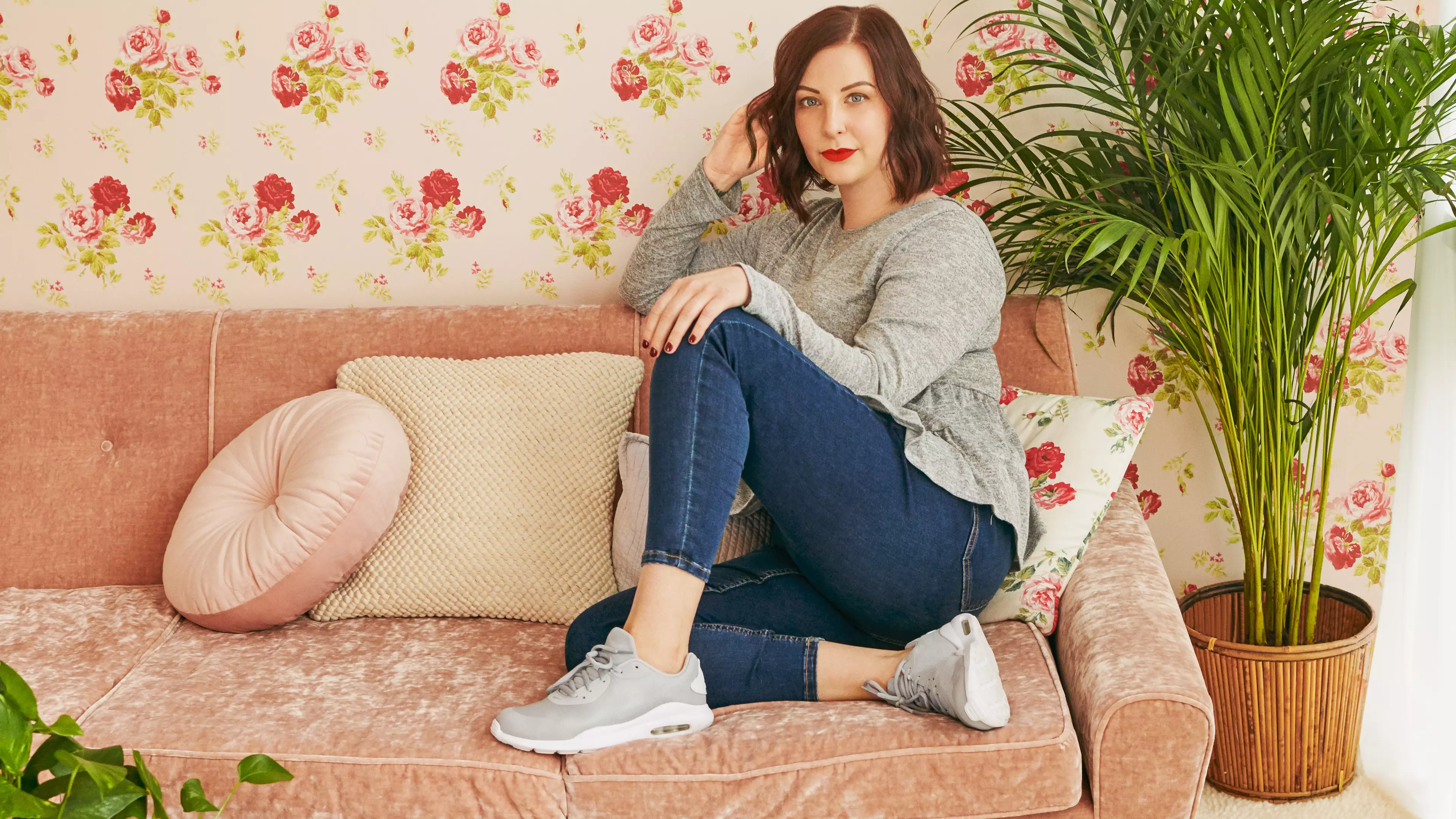
Last month, Breast Cancer Now published some startling figures: around 1 million breast screening appointments have been cancelled so far this year.
It's a deeply worrying statistic, the true impact of which is yet to be seen. But if you've ever found a lump in your breast, you'll know how easy it is to delay getting it checked; juggling work with family and a social life are common excuses for putting it off.
Sadly, the pandemic has provided yet another.
Advert
Manveet Basra, Head of Public Health and Wellbeing at Breast Cancer Now, tells Tyla that the number of people being referred for breast investigations is nowhere near what it was pre-Covid.
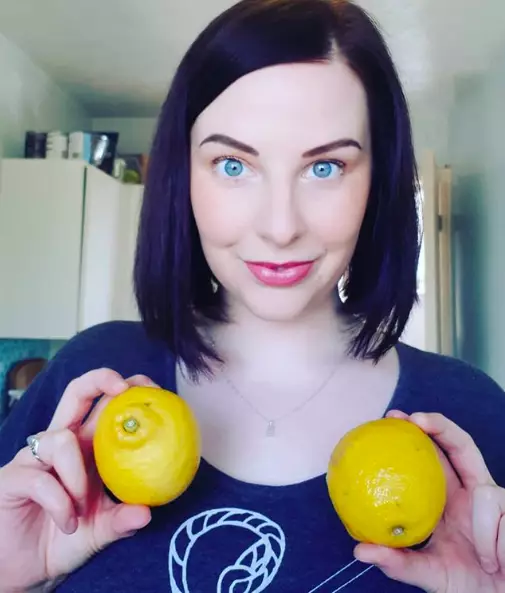
Meanwhile, Cancer Research UK estimates that over 20,000 cancers have been missed, largely because fewer people are going to their GP.
It's a problem. And something that 30-year-old Katie Huttlestone, from Ware, is convinced will have "catastrophic consequences" for patients. Katie, who is living with secondary breast cancer after being diagnosed three times before the age of 30, knows the reality of these consequences all too well.
Advert
Katie, an English teacher, was first diagnosed with breast cancer at the age of 21, during her third year at the University of Reading.
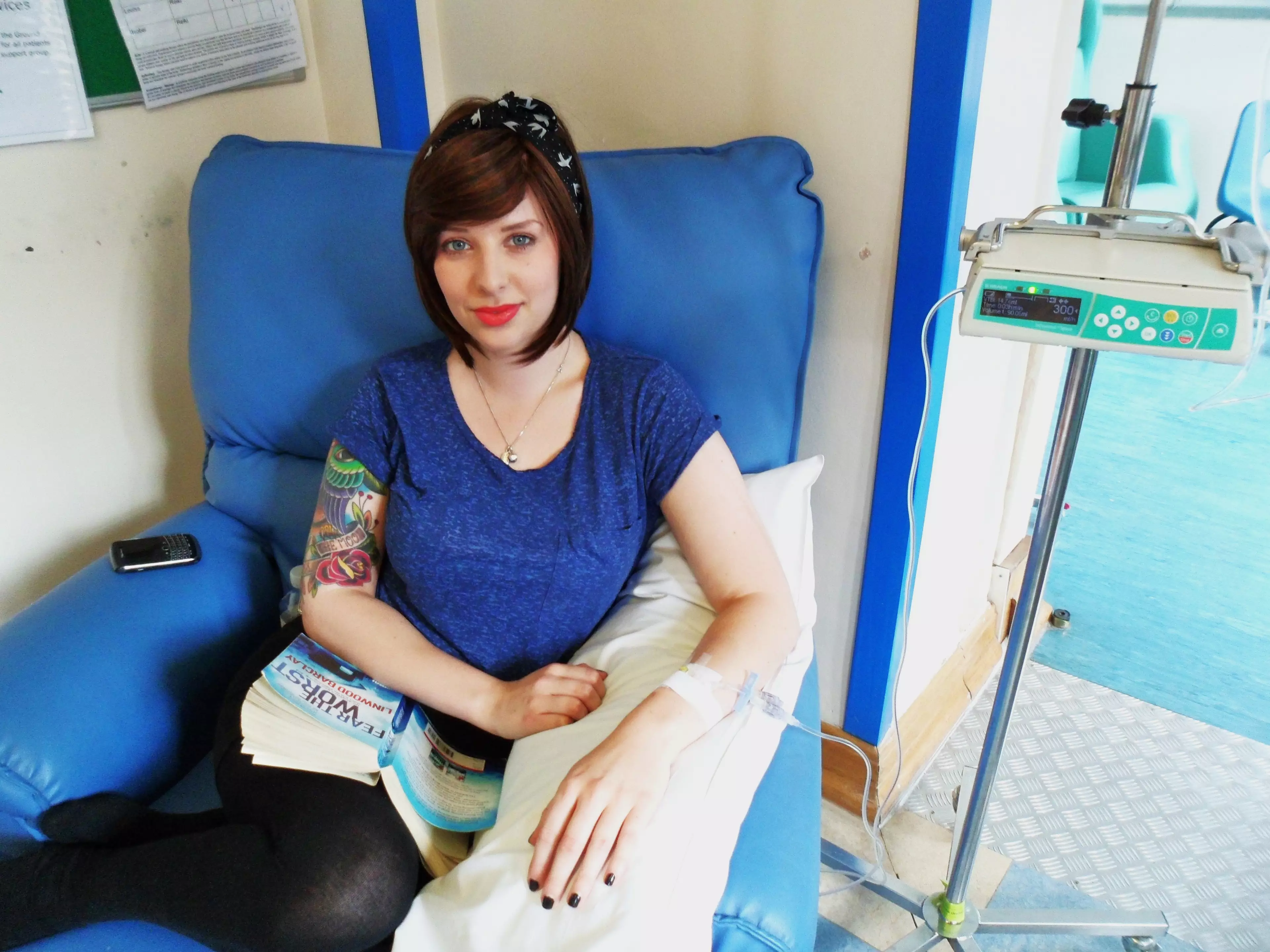
Despite doctors being adamant that the hard, mobile lump she had found in her right breast wasn't cancer, six weeks on from her initial appointment and she was diagnosed with aggressive, stage three breast cancer.
She didn't know it at the time, but it would be the first of three diagnoses she would have before her 30th birthday. The last came in January 2019, when Katie found out she had secondary breast cancer (meaning it had spread to another part of her body); this time in her hip bone.
Advert
Her cancer is now deemed by doctors as 'incurable'.
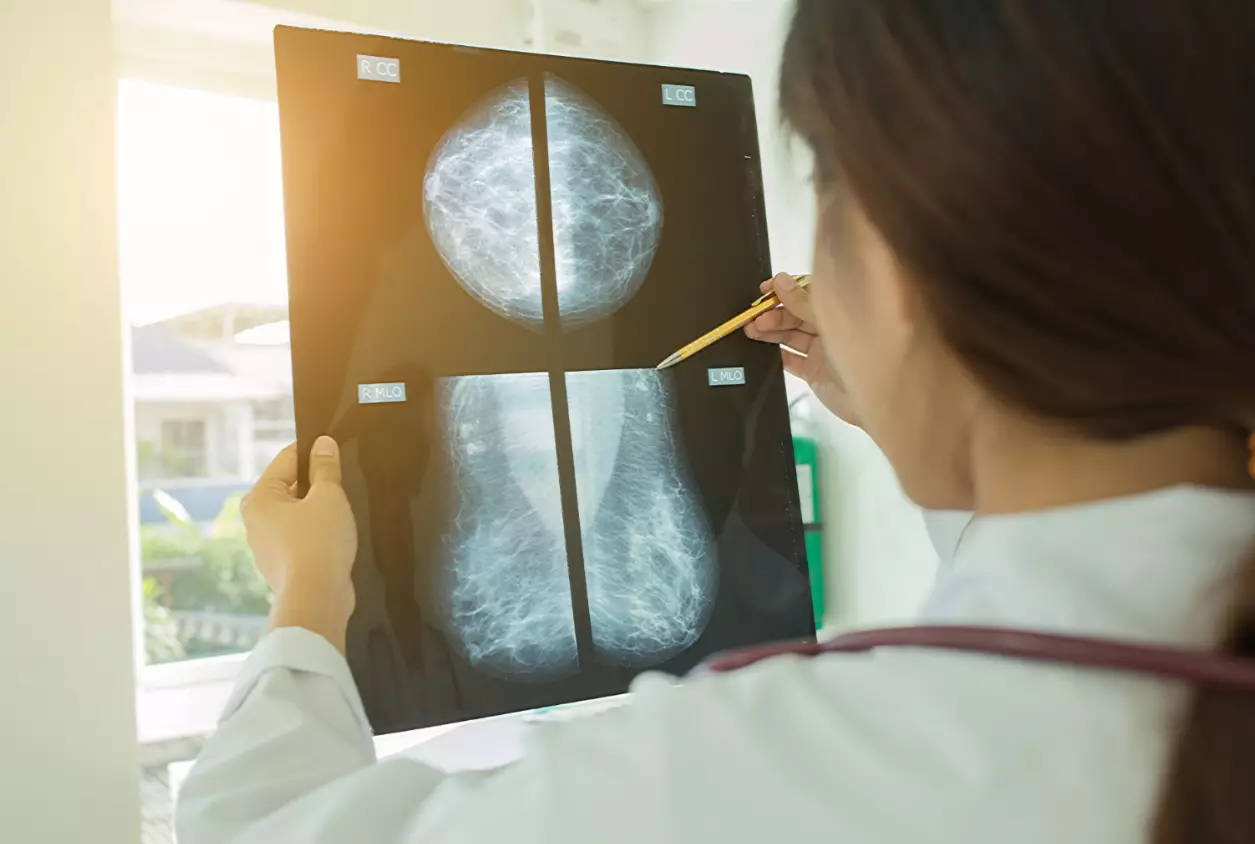
Aged just 21 at the time, Katie was forced to grow up very quickly.
"I was having to leave behind hopes, dreams, ambitions - a version of myself. I went from absolute freedom to moving in with my grandparents. Ultimately, I felt lost and I had to grow up really quickly," she says.
Advert
"The cancer was hormone receptive, which means it's fed by the oestrogen in your body. So quickly they worked to stop my periods and put me into a medically induced menopause, which means I can't have kids.
"It was another part of myself lost - most women bemoan their periods but I miss them even now, I miss the sensitivity and the awareness of your body that it brings.
"The cancer was also in my lymph nodes. In fact, if they had waited any longer I could have been diagnosed with stage four breast cancer instead."
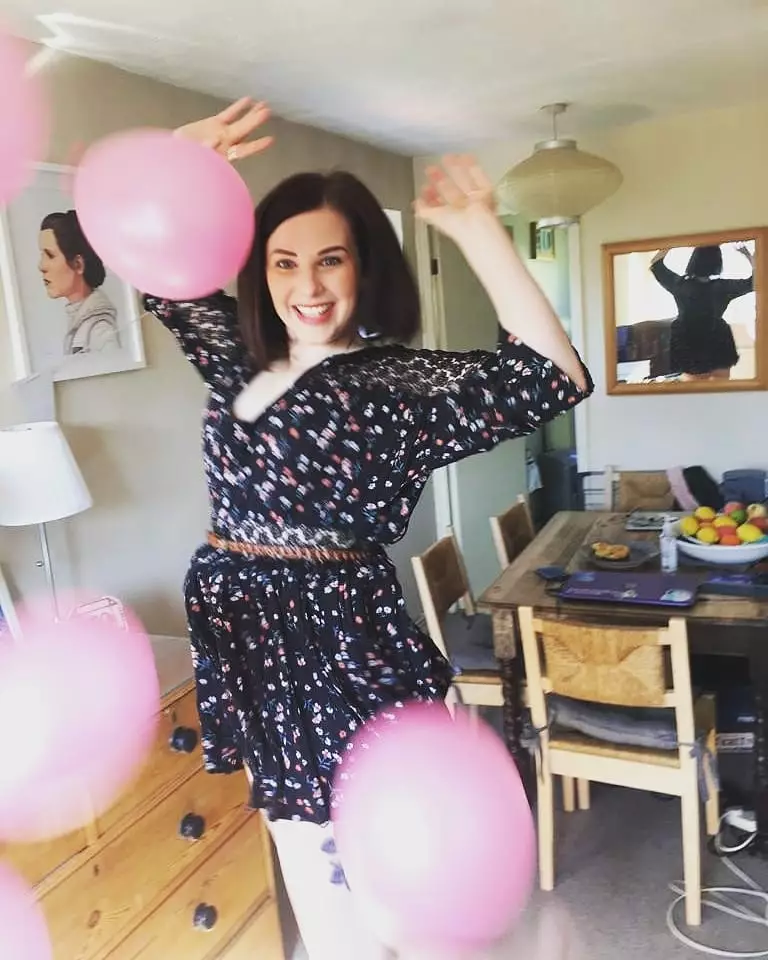
Katie was sent for six rounds of chemo and was hospitalised twice due to her lack of white blood cells (a side effect of chemotherapy), undergoing a mastectomy followed by radiotherapy.
Advert
The treatment was successful and for nearly five years, Katie had an annual breast scan to detect any new changes or lumps. But then doctors found cancer in her other breast, and she was forced to undergo a second mastectomy.
"My toes were metaphorically on the finish line of the five year mark when they picked up the second primary cancer in my other breast," she continues.
"I think it's quite dangerous to pedal the idea that once you're past that five year mark then you're safe - it doesn't work that way.
"It was caught early so I didn't need chemotherapy or radiotherapy, instead I opted for a mastectomy on the other side."
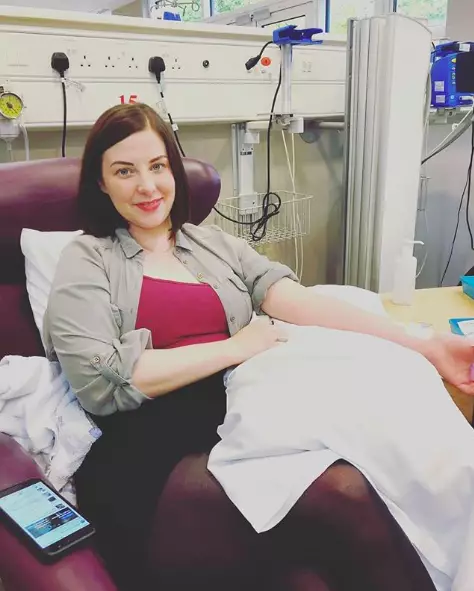
But Katie's journey wasn't over and just a few years later, she was diagnosed with secondary breast cancer in her bones.
"Luckily I had educated myself, so when I started with a dull ache in my left hip, I was very aware of it. I tried to contact my oncologist, but the receptionist said there were no appointments for two months.
"I was adamant that I needed to be put through to the oncologist's secretary straight away, and as soon as I was, she asked me to come in that evening. Can you imagine if I had waited two months?"
Katie's struggle to get a diagnosis is part of why she feels so strongly about early detection - something that has taken a dramatic downturn during the pandemic.
"The current figures are a horrible warning," she says. "My big worry for younger women is that the chaos of the pandemic means they will delay going to the doctor - but the time between diagnosis and treatment is essential. The cancer can and will spread and sometimes quite aggressively depending on the grade.
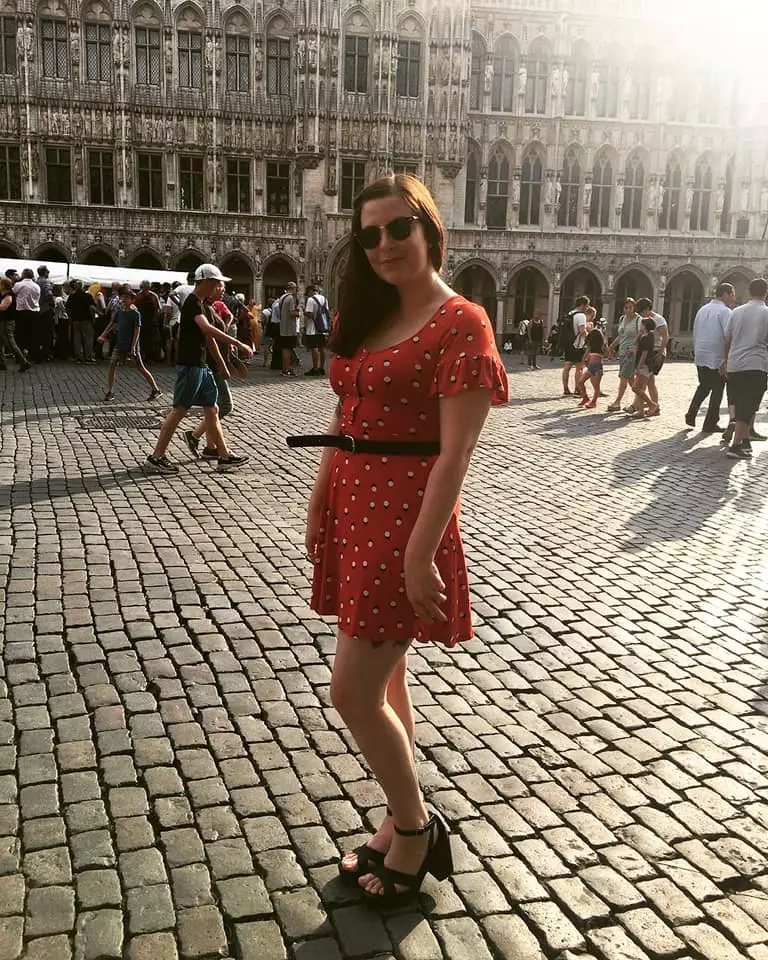
"Never shy away from becoming an inconvenience. It would be a hideous sense of accountability to know you yourself were instrumental for having not sought help sooner - I would never want anyone to have to shoulder that. With any lump or bump, your body is trying to tell you something - listen.
"Unfortunately cancer is a far bigger killer than Covid - 31 women die every day from breast cancer. It's not going away and if everyone decides to put it on hold there's going to be catastrophic consequences."
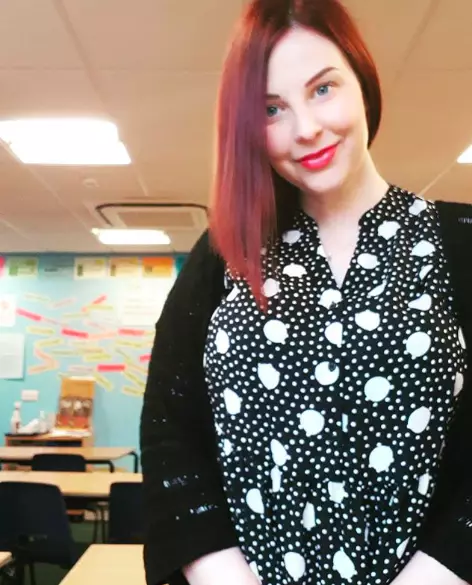
Of course, it's not just an initial diagnosis that the pandemic is delaying, but treatment too. During lockdown, one of Katie's crucial treatments was paused for around a month, during which time she developed a second tumour on her hip. Luckily, she is currently deemed stable.
At 30 years old, Katie has faced more than what many people face in a lifetime - something she says has changed her for the better.
"I'm so proud of the version of who I am today. I know what's valuable in my life, I put so much passion into everything I do. With my teaching, I'm really trying to shape lives in a positive way and spread good information and awareness."
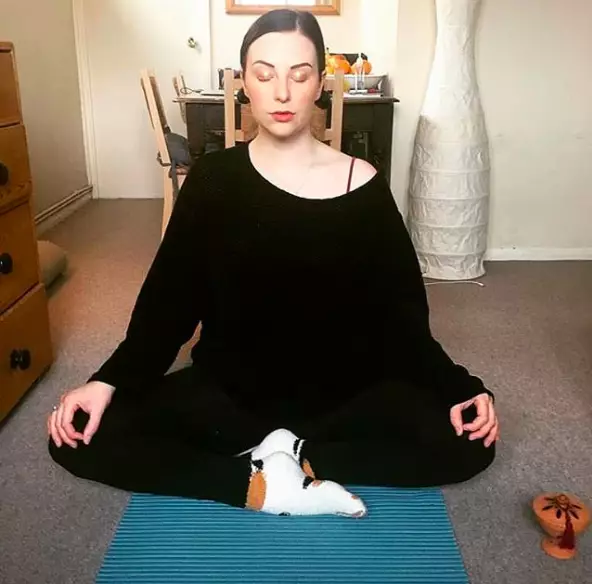
You can find help and advice about breast cancer and how to check your breasts here.
Katie is supporting Cath Kidston and Breast Cancer Now's Spot It campaign to encourage everyone to check for signs and symptoms of breast cancer. Visit breastcancernow.org for more information.